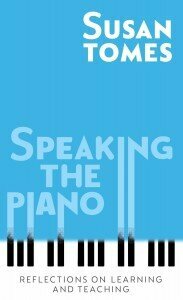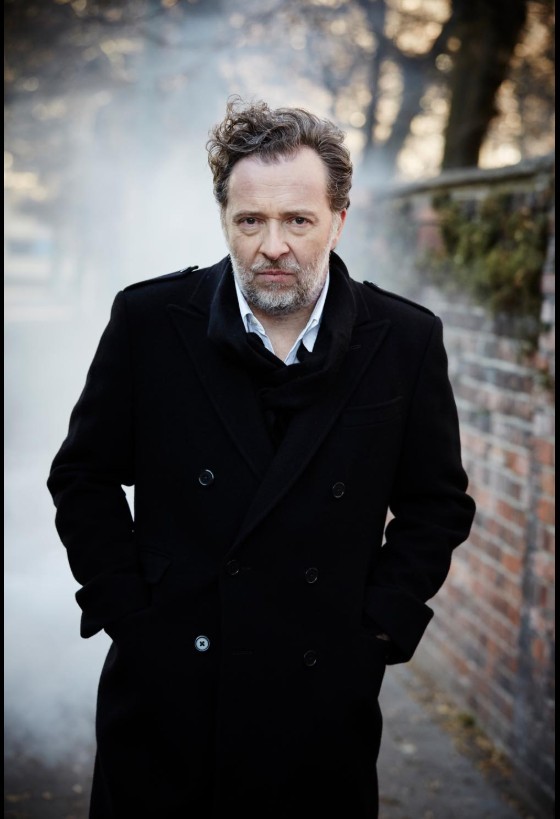 This is the fifth book by acclaimed Scottish pianist Susan Tomes, and unlike her previous books whose primary focus is on the exigencies of life as a professional musician – from ensemble playing and touring, coughers in the audience to concert attire, or dealing with reviews – this latest volume is a series of reflections on learning and teaching.
This is the fifth book by acclaimed Scottish pianist Susan Tomes, and unlike her previous books whose primary focus is on the exigencies of life as a professional musician – from ensemble playing and touring, coughers in the audience to concert attire, or dealing with reviews – this latest volume is a series of reflections on learning and teaching.
At a time when music education is under serious threat, at least in the UK’s state schools, Speaking the Piano is in part a paean to the wonderful teachers Susan herself has studied with, including the renowned Hungarian piano professor, Gyorgy Sebok, a celebration of teaching and learning, and a heartfelt plea to retain music education as part of the school curriculum.
My own musical education, acquired internationally and continuing well into adult life, was a fascinating experience. It had an impact on me and my approach to life far beyond the arena of music. As time went by I began to teach the next generation of musicians, and found that the experience of teaching was as fascinating as the experience of learning. – Susan Tomes
The book is divided into two sections, Teaching and Learning, and in the first section, Tomes draws on her experience as both a performer and teacher as well as her interactions with adult amateur pianists in the Piano Club which she recently established. Her wisdom is evident on every page and her writing is, as always, eloquent and intelligent, but never didactic. She is sensitive to the difficulties faced by many adult amateur pianists – and even some professionals too – in areas such as anxiety, harnessing the imagination, notation and reading music, understanding tempo and dynamics (not only physical but also psychological aspects of interpreting these markings), gestures and movement at the instrument, and myriad other issues, large and small, which face pianists and musicians in general whenever they go to play the music. She writes with honesty and clarity, using her own experiences as a student and teacher as the basis for sympathetic advice and guidance, and one has the sense throughout that she firmly believes in lifelong learning and that a teacher should always be adaptable and open to new insights and ideas, which may come unexpectedly from interactions with students. The book also celebrates the passion and commitment of the amateur pianist and gives encouragement to those who may find learning the piano at once wonderful and also frustrating.
Gabriel Fauré: Dolly, Op. 56 (version for piano 4 hands) (Ian Brown, piano; Susan Tomes, piano)
The second part of the book on learning offers longer essays on the masterclass experience (good and bad), the wonders of jazz improvisation, and different genres of music. The final chapter – Music Lights Up the Brain – discusses the pleasure of music, and the process of studying and learning music, the skills required to become proficient, and how teaching music performance at a high level (for example, in conservatoire) is a highly specialized art. Tomes also touches on scientific research into the benefits of playing a musical instrument and how learning music in school encourages children to develop self-confidence, cooperation, creativity and collaboration, and ends with a plea to “kindle a fire which will light the young musician’s path as they set out on their own journey of discovery”.
An engaging and engrossing read for music teachers, musicians and music lovers alike.
Speaking the Piano
Boydell Press UK, 2018
More Reviews
-
 The Schubertiade July Performers Meet the star performers at Schubertiade 50th anniversary celebration
The Schubertiade July Performers Meet the star performers at Schubertiade 50th anniversary celebration - Schubertiade Hohenems 2025
Programme Highlights
Universal Embrace Discover the program featuring Schubert's Winterreise, Schumann's Dichterliebe - Itinéraire Baroque 2025
A Journey Through Time and Place A musical pilgrimage through forgotten Romanesque churches! -
 A Beautiful Thread: Celebrating Thomas Hardy’s Legacy in Words and Music Discover how excerpts from Hardy's novels combined with David Le Page's music
A Beautiful Thread: Celebrating Thomas Hardy’s Legacy in Words and Music Discover how excerpts from Hardy's novels combined with David Le Page's music


